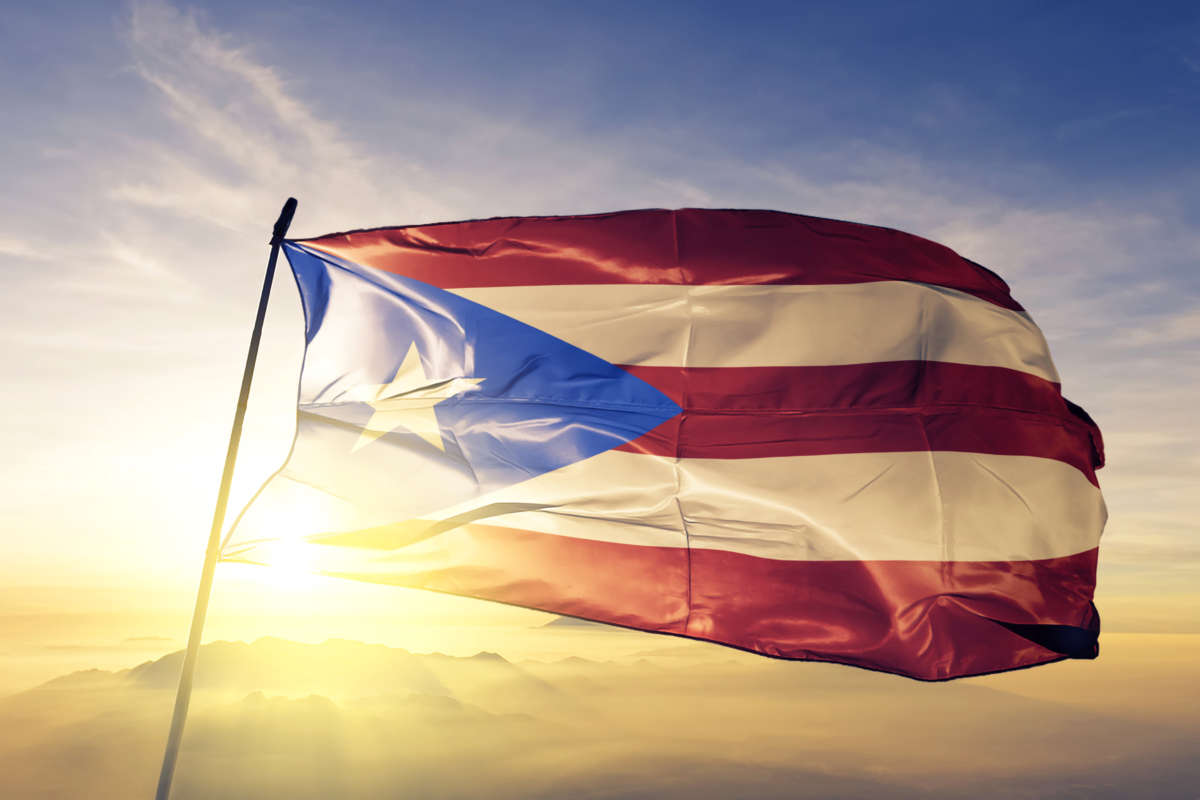Lawmakers announced on Tuesday that they will put forth a bill that will create a path to statehood for Puerto Rico that is similar to how Alaska and Hawaii were incorporated as states.
The bill was introduced by Rep. Darren Soto (D-Florida) and Puerto Rico Del. Jenniffer González-Colón and has 50 co-sponsors and the backing of Puerto Rican Gov. Pedro Pierluisi. It will be introduced in the Senate by Sen. Martin Heinrich (D-New Mexico). The bill would be an offer of statehood from Congress that sets up admission into the U.S., and the island’s residents would vote on whether or not to be incorporated in a referendum.
The lawmakers say that the bill is a path for justice and representation for Puerto Ricans, who are American citizens but can’t vote for the president and have no voting representation in Congress.
But the bill runs contrary to the proposal put forth by Representatives Nydia Velázquez (D-New York) and Alexandria Ocasio-Cortez (D-New York), which offers a path forward for Puerto Rico called the Puerto Rico Self-Determination Act.
The bill introduced by Velázquez and Ocasio-Cortez last year doesn’t explicitly call for a path to statehood for the island. Rather, it would create a legislative body that would allow voters to elect delegates who would then determine a long-term solution for Puerto Rico — whether that’s statehood, independence or something else.
A representative for Ocasio-Cortez told CBS that she opposes Tuesday’s statehood push by the Democratic lawmakers, restating the representative’s support for a “process of self-determination for Puerto Rico.”
Though many cite a recent vote in which a slim majority of Puerto Ricans voted for statehood, the reality of such votes and the statehood question is marred with controversy and politics as a result of the years of colonialism imposed on the island. As Ocasio-Cortez and Velázquez pointed out in a piece for NBC, previous referendums on statehood are significantly skewed to the point where the Justice Department wouldn’t even validate the results of the 2017 vote.
In recent years, votes have also been skewed by recent inhabitants of the island. The Daily Beast explains that many successive governors of Puerto Rico, including the current one, who have been in favor of statehood have also been responsible for the steady colonization of the island over the past years. Because Puerto Ricans don’t have to pay federal taxes and governors have placed further incentives like zero personal capital gains tax, these leaders have made it an attractive destination for wealthy state-dwellers wishing to dodge taxes and driven a push to gentrify the archipelago in the Caribbean Sea.
Though the situation is not well-known to most citizens of the 50 states, people like Senate Majority Leader Chuck Schumer (D-New York) have criticized Puerto Rican leaders who believe in pro-statehood, including Pierluisi. “We oughta tell that governor none of this bullshit that you let millionaires and billionaires escape taxes,” Schumer told The Daily Beast. “And I’ve told him that.”
Republicans oppose the statehood push because they think that statehood would lead to further Democratic representation in Congress. But some argue that the island deserves to be seen as more than just its federal political potential. “Democrats need to grasp that Puerto Rico is more than a hope for blue votes,” writes Andrew J. Padilla for The Daily Beast. “It is an occupied nation with a right to determine its own future, not cannon fodder in a fight for control of the U.S. empire.”
As the lawmakers announced their statehood bill on Tuesday, pro-independence groups organized counterprotests. Those who advocate for independence say that the U.S. government has suppressed the island and has never given it a chance to decide on if they want to be independent or not.
Advocacy groups who support the Puerto Rico Self-Determination Act also took ads out in The New York Times to push back against the new bill. “True equity can only be achieved when Puerto Rico is free to decide its own destiny, armed with information and a full understanding of the entire range of non-territorial political status possibilities available,” the groups wrote.
Join us in defending the truth before it’s too late
The future of independent journalism is uncertain, and the consequences of losing it are too grave to ignore. To ensure Truthout remains safe, strong, and free, we need to raise $31,000 in the next 48 hours. Every dollar raised goes directly toward the costs of producing news you can trust.
Please give what you can — because by supporting us with a tax-deductible donation, you’re not just preserving a source of news, you’re helping to safeguard what’s left of our democracy.
